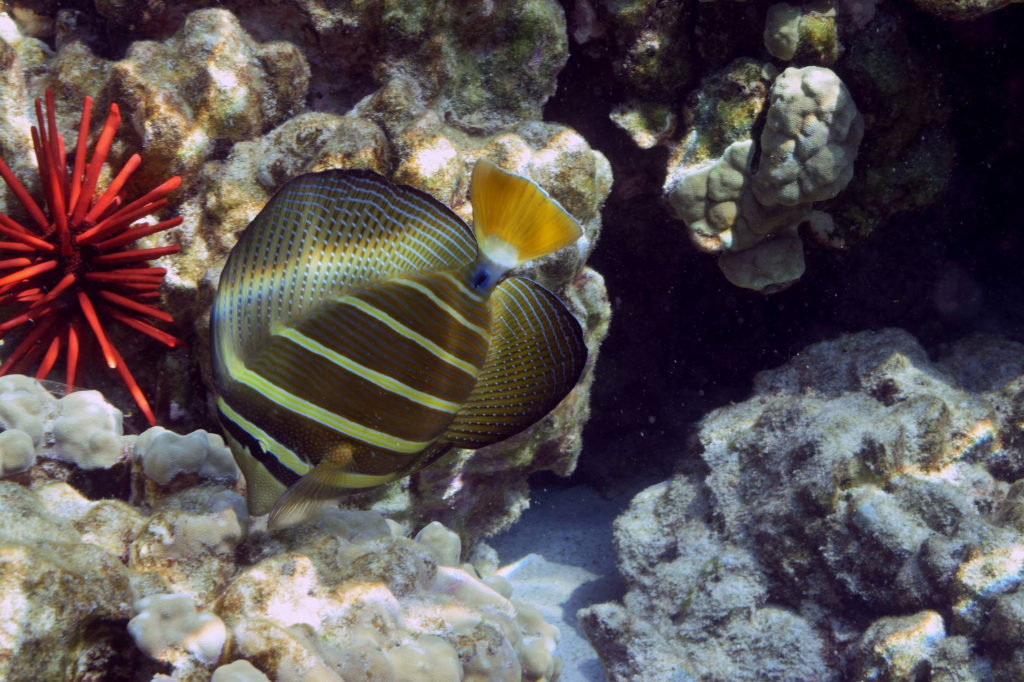ReefTeach Volunteers Training, April 19

A sailfin tang and pencil urchin in Kahalu‘u Bay. ReefTeach volunteers educate swimmers and snorkelers how to enjoy Kahalu‘u Bay without harming the bay’s corals, turtles, and other marine life. PC: Kris Bruland
The Kohala Center’s Kahalu‘u Bay Education Center is seeking volunteers who love the beach and want to help protect Kahalu‘u Bay and its coral reefs, fish and turtles through its ReefTeach program.
A free training session for new volunteers will be held on Thursday, April 19, 2018, from 5 to 7 p.m. at the Kahalu‘u Bay Education Center tents at Kahalu‘u Beach Park in Kailua-Kona. ReefTeach volunteers are “ambassadors of aloha” who welcome residents and visitors to the park. The volunteers teach visitors proper reef etiquette and help them identify fish, turtles and invertebrates in the bay.
With nearly 500,000 people visiting Kahalu‘u Bay each year, the health of the bay’s corals and marine life depends on ReefTeachers who educate swimmers and snorkelers on how to enjoy the bay without harming marine life.
ReefTeach is a program The Kohala Center’s Kahalu‘u Bay Education Center, which promotes environmental stewardship to ensure the bay remains a healthy and welcoming place for residents and visitors alike.
A partnership between The Kohala Center and the County of Hawai‘i, Kahalu‘u Bay Education Center is based at Kahalu‘u Beach Park at 78-6710 Ali‘i Drive and is open from 9:30 a.m. to 4 p.m. every day that the park is open.
To learn more or to sign up, contact Kathleen Clark at [email protected] or (808) 887-6411.
About The Kohala Center
Founded in the year 2000, The Kohala Center is an independent, community-based center for research, conservation, and education. We turn research and ancestral knowledge into action, so that communities in Hawai‘i and around the world can thrive—ecologically, economically, culturally, and socially.
















